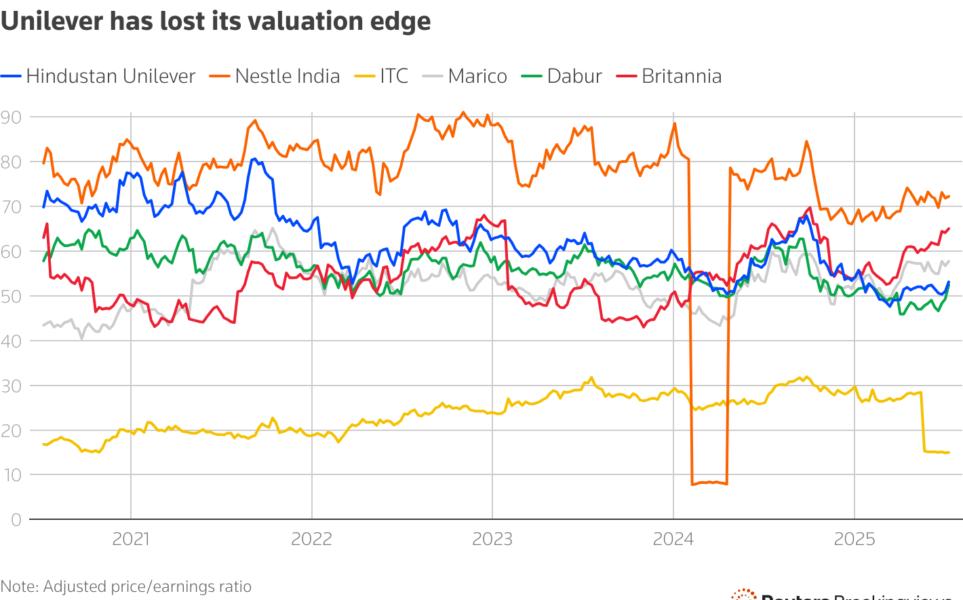Unilever India boss’s first job is a deep clean
Indian consumers are shaking a global giant awake. Last Thursday, Unilever ULVR named Priya Nair CEO of its local unit to replace Rohit Jawa, who will leave at the end of July after completing less than half of his term. The $150 billion maker of Dove soap is struggling to grow in its second-largest market. The new chief’s biggest task is refreshing the unit's stale business.
The management rejig, which fuelled a 5% surge in Hindustan Unilever’s (HUL) HINDUNILVR shares on Friday, follows a change of guard at the London-headquartered group and years of weak performance at the Indian unit. Over the past two years, HUL's sales grew just 2%, far behind Nestle
NESTLEIND which managed 9%. This bleak performance is captured in the Mumbai-listed shares. HUL trades at 52 times the unit’s expected earnings for 2025, lagging Nestle India, which trades at 68 times.

There are multiple reasons for this yawning gap. To start, the owner of the Lakme beauty brand is failing to keep up with homegrown challengers like $7 billion Nykaa (NYKA.NS) and $1 billion Honasa Consumer’s HONASA Mamaearth, which offer more differentiated beauty products to the well-heeled and upwardly mobile Indian consumers. At the lower end of the market, private labels are finding favour with shoppers on a budget. HUL reacted to the trend with a new strategy involving a $311 million acquisition of skincare brand Minimalist in January, among other things, but it needs to do more. It could consider adding Temasek-backed fast-growing packaged snacks maker Haldiram's to complement its portfolio. Introducing global brands like Ben & Jerry's ice cream or Maille condiments would offer an easy refresh of its India shelves too.
A shifting market structure has pulled the rug from under the vaunted distribution model of the Brooke Bond tea maker. Urban Indians are increasingly ordering everything from milk to lipstick through apps like Blinkit, backed by $28 billion food delivery champion Eternal ETERNAL, which offers 10-minute deliveries and a superior product selection. HUL is yet to update its supply chains to keep up with the speedy replenishment this channel demands. This is a problem given this end of the grocery market is growing 70% annually, per Bernstein.
Nair currently presides over Unilever’s beauty business and is an old India hand. That sets her up nicely to tackle the aforementioned issues. And if she manages to revitalise the business, it will also help the larger Unilever group, which owns 62% of the Indian unit. But given how far Unilever's Indian business is lagging, the cleanup will take time.
Follow Shritama Bose on Linkedin and X.
CONTEXT NEWS
Unilever's Indian unit on July 10 said Priya Nair will take charge as its CEO on August 1. Nair currently serves as president of the London-headquartered company's beauty and wellbeing division.
She will take over from Rohit Jawa, who has held the top role at Hindustan Unilever since June 2023. Jawa will leave the group without completing his five-year tenure as CEO of the unit.
Hindustan Unilever's Mumbai-listed shares rose 5% on July 11, following the announcement.
The unit's chief financial officer, Ritesh Tiwari, is likely to step down from the function and be moved to a global role, CNBC-TV18 reported on July 11, citing unnamed sources. The report was later updated to remove the reference on his move to a global role.